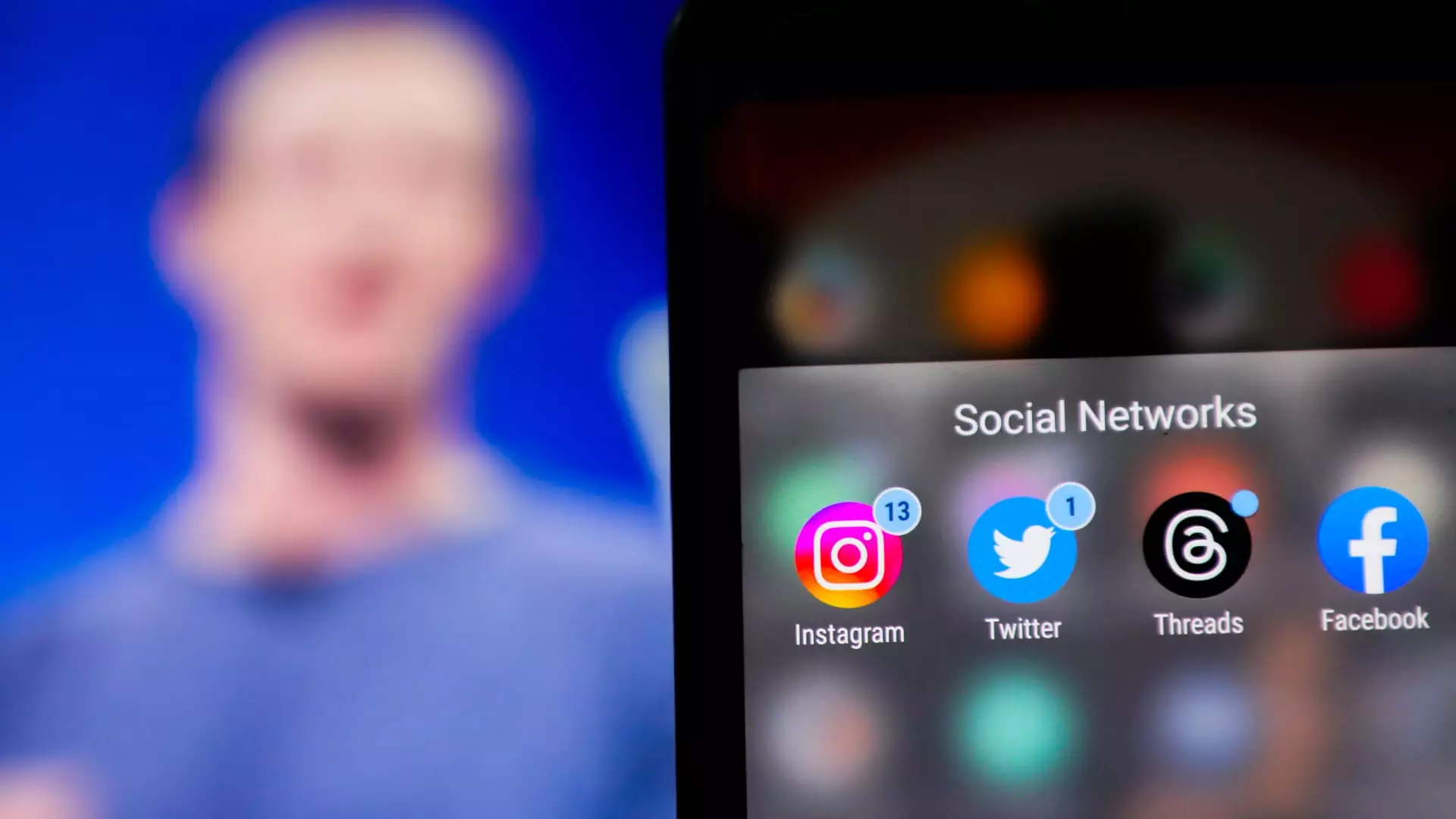The ongoing antitrust trial involving Meta aims to dissect one of the most scrutinized tech conglomerates in the world. The revelations presented in court regarding Mark Zuckerberg’s internal considerations about spinning out Instagram send shockwaves through the tech sphere. This isn’t merely an afterthought in a high-stakes courtroom drama—it’s a reflection of the colossal pressure exerted on tech behemoths by calls for increased regulation. Within an email from May 2018, Zuckerberg expressed his apprehensions. He pondered whether separating Instagram, acquired for $1 billion, was the only strategic move left to safeguard Meta against escalating antitrust litigation. This introspection does not just reveal corporate strategy; it unveils fear—the fear of being deemed too powerful.
The Power Dynamics of Big Tech
The question that looms over this trial transcends mere legality; it delves into the very nature of power dynamics in the digital age. Zuckerberg mentioned that there is a “non-trivial chance” they would have to spin out Instagram and possibly WhatsApp due to external pressures. This candid admission starkly illustrates one of the most essential challenges of our time: Can we realistically prevent monopolies from forming in an era defined by rapid technological advancement? The FTC’s argument hinges on a notion that feels increasingly relevant in a world dominated by a handful of tech titans. Meta’s assertion that competition exists—pointing to TikTok and Apple’s iMessage—is not only a rebuttal to legal accusations but a testament to tech’s chaotic and often misleading landscape.
Instagram’s Hypothetical Independence
The trial doesn’t just revolve around current market dominance; it also invites speculation about what could have been. Zuckerberg’s insight that Instagram might have remained at the scale of Twitter or Snapchat had it not been acquired starkly frames the power of opportunity. The thought that Instagram, if left independent, would boast 300-400 million monthly active users instead of nearing a billion is a narrative filled with could-haves and should-haves. Yet, it forces us to confront a stark reality: monopolistic practices ultimately stifle true innovation. Imagine a world where multiple photo-sharing apps vie for user attention—not merely Instagram overshadowing its competitors.
The Disputed Competitive Landscape
Meta’s narrative of competitive rivalry is a nuanced argument. Their claim that the FTC overlooks significant players like TikTok does have merit; these platforms indeed pose serious competition. However, the challenge lies in equitable competition. Riding the wave of innovation while simultaneously stifling others doesn’t foster a healthy ecosystem. If Facebook’s approach ultimately involves acquiring or sidelining competitors rather than fostering innovation and fair play, then we are presented with a false dichotomy of choice.
We must demand more from our regulatory bodies as consumers navigate the complexities of the digital marketplace. Zuckerberg’s fears and the FTC’s legal posturing illustrate more than mere corporate power struggles; they spot the glaring need for balanced regulation that ensures no entity can hoard control to the detriment of consumer choice and innovation. As technology evolves, so too must our approach to managing its influence and impact on society.

